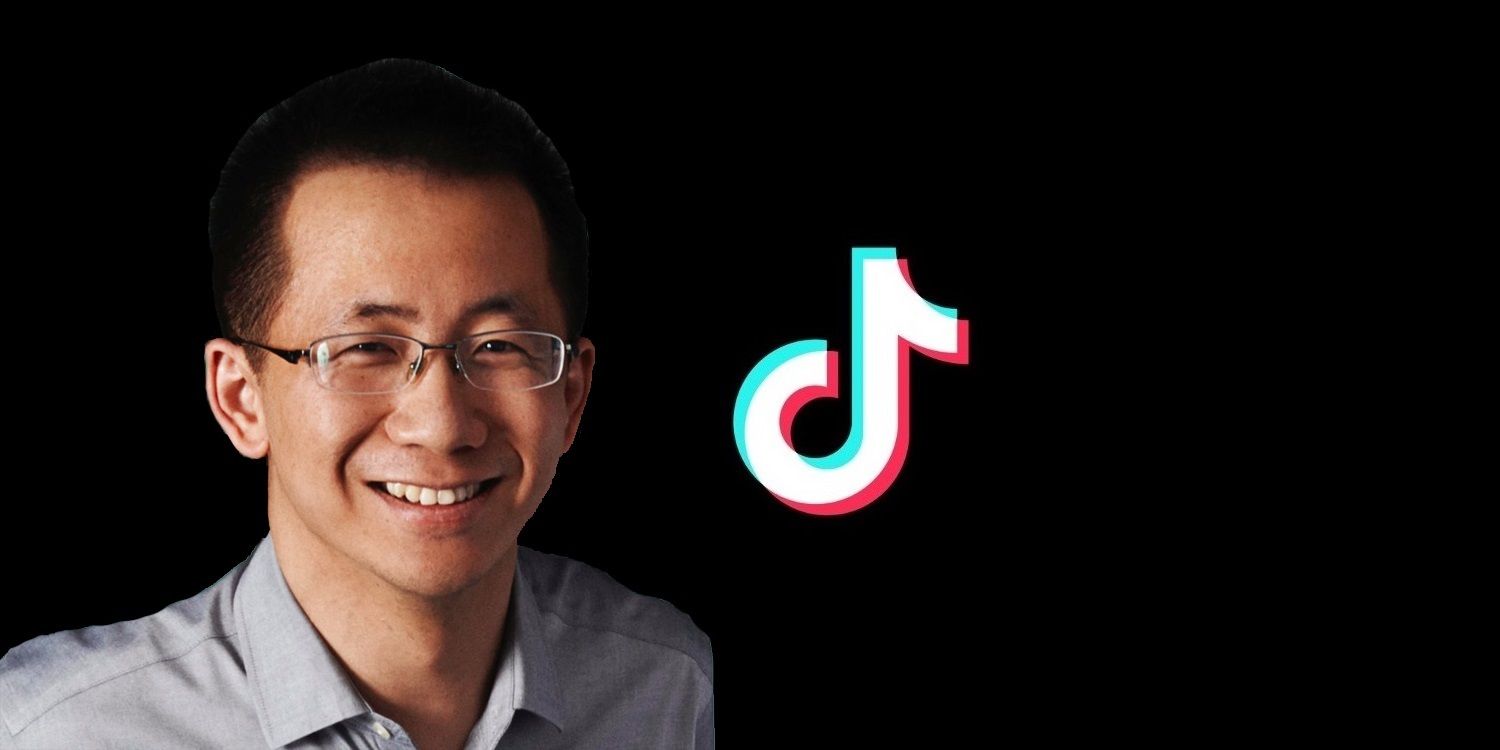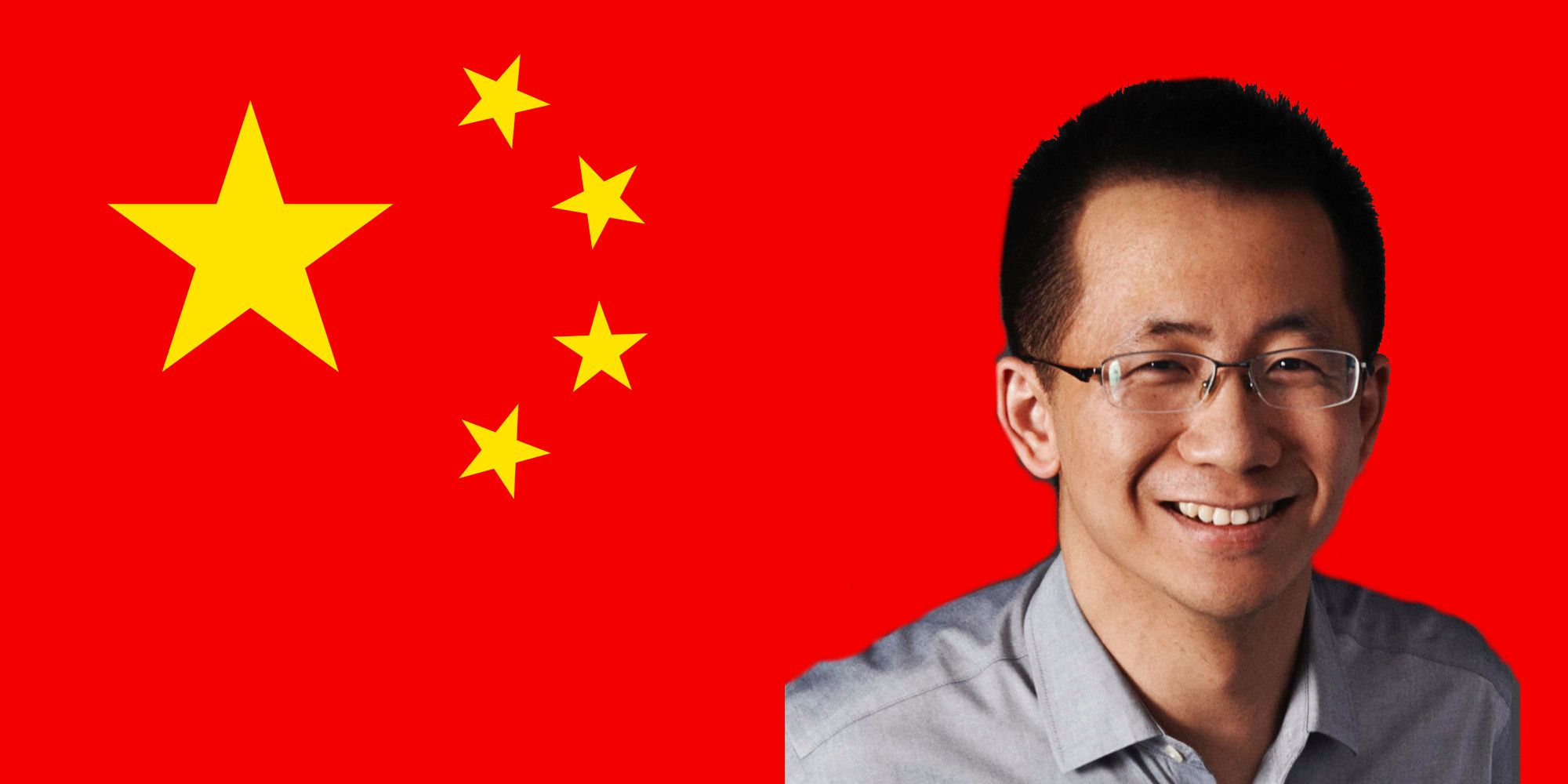
The popularity of the video-sharing platform, TikTok, has already reached an iconic app status. Users from all over the world are signing up in droves, and creating short videos paired with custom audio or trending music. Despite the app's massive success, the man behind TikTok is seldom mentioned and appears to live a relatively private life.
The CEO of ByteDance is Zhang Yiming, and Zhang’s history of working with startups helped to create the most successful startup in the world. It is worth mentioning that TikTok had a recent change of leadership when ex-Disney executive, Kevin Mayer, took over as CEO, and the new leadership is evidence of TikTok's international ambitions. Although this is not an app that needs much help, considering it has already been downloaded over two billion times. One of the reasons for the app's success is its appeal to a younger audience that likes to compete in various challenges, on top of performing in front of a camera. The impact of the app has even affected the music industry with new stars emerging based on their musical talents being showcased in the app. Despite all of this, TikTok’s relationship with China has continually made some nervous.
Companies like Facebook, can be used as a comparison to TikTok’s parent company, ByteDance. The CEO of Facebook, Mark Zuckerberg, is the head of the company, and Facebook has successfully acquired several different apps to help expand the company’s brand, reach, and users. The path to ByteDance’s success and TikTok’s international reach is similar. While social apps use a variety of technologies, AI technology and algorithms have specifically helped to set TikTok apart. Despite the comparison to Facebook, the billionaire behind ByteDance is not like Zuckerberg as a person. Instead, the mysterious CEO of ByteDance has a unique business philosophy and tends to remain behind the scene more often.

Zhang founded ByteDance in 2012, and later in the same year launched Toutiao, a news-reading app. Following this, the company acquired Flipagram, a service that provides users with a way to make music videos. The best part about the app was users could share their videos with friends.
In 2016, and as the company continued to grow, ByteDance released the Chinese version of TikTok, known as Douyin. Compared to TikTok, Douyin users are slightly older, and the app offers different features that allow people to perform in-app purchases. Despite the limited release, Douyin gained over 100 million users within one year and as reported by TechCrunch, it was recently estimated that the China-exclusive app boasts 400 million daily active users.
The international version of Douyin, TikTok, was officially launched in 2017, and can attribute a lot of its success to ByteDance’s acquisition of Musical.ly, a Chinese app that let users lip-sync to their favorite songs. To highlight just how important many viewed Musical.ly, Facebook even attempted to buy it, as reported by BuzzFeed. However, with ByteDance purchasing the lip-syncing app instead, it gave the Chinese company a foothold to work with outside of China.
After the acquisition of Musical.ly, ByteDance was able to retool TikTok by merging it with the lip-syncing app in 2018. This version connected with the younger audience that Musical.ly had already attracted, while also utilizing the gained knowledge on the best method to share different stories and videos. Essentially, TikTok’s design was not a fluke, and when Vine ended, there was an established market with people looking for a platform just like this.

ByteDance believes that machine learning has an important role and that modern-day technology, benefits from it. When Zhang established ByteDance, the nerve center of the operation would revolve around machine learning and artificial intelligence. Referenced in its AI Lab, ByteDance illustrates how the tech company would be unable to perform as well, without the use of AI technology. Additionally, the company’s work culture also emphasized the need to test boundaries and take risks. A 2018 article by The Verge, previously highlighted the importance of the use of AI in creating TikTok's dynamic user experiences.
After having noticed the way users were gravitating to mobile devices, the opportunity to use machine learning technology on a mobile platform arose. Zhang’s methods changed the way people interact with information, as the AI tracks user behavior based on the decisions users make while using the app. This results in a more tailored experience where what one user sees is not necessarily the same as what another sees.
The assortment of curated content is a strong motivator for users to return to a platform and Zhang recognized this potential with ByteDance’s Toutaio, and AI-based recommendations was the key. In addition, the consistent improvement to personalize the app also had the knock-on effect of helping machine learning to continue to learn and solve different tasks. From the developer point of view, this user tracking provided further insight into how people were using the app and what they could do to improve the experience. With TikTok having adopted a similar AI approach, it has massively helped the platform create an addictive experience where it is all too easy to fall down a content rabbit hole. The app demonstrates its use of machine learning technology through its filters and the “For You” section that recommends new TikTok videos.

Digital business ventures in China can be tricky due to censorship and China’s data laws that allow the government to access a company’s data for any reason. Whether the result of a personal decision or an effect of China’s censorship, the reality is, information about the CEO is rather limited. Moreover, despite TikTok’s widespread fame, it is important to keep in mind that users in mainland China cannot access the app. In a public statement, Zhang acknowledged that he had taken on the role as an entrepreneur, and not just a software engineer, although in the South China Morning Post, Zhang explained how his way of thinking has since changed. Zhang said, “Since I became an entrepreneur, I have been exposed to more and more people and experiences. When I was an engineer, my thought patterns were pretty limited. But now I must develop a product, which makes it necessary for me to understand our users and what they experience.”
The CEO originally took a back seat with creation because of the feeling that Zhang might not be the right audience to participate in the app. However, Zhang also changed his mind on this and now actively encourages staff to make their own videos. It is worth noting that Zhang has no verified account on TikTok, but this could also be a result of the more frequent access to, and use, of Douyin in China. In terms of the CEO’s philosophy on business, Zhang made a statement on the Chinese social media network, Weibo, stating how companies themselves should be developed as a product.

Zhang’s history of startups and the time spent working at Microsoft likely helped in how the company is now being run. Despite accomplishing so much, Zhang believes that there's still plenty more that can be done. This ideology, innovative thinking, and the attempts to understand users have further helped in the creation of such a popular app. Through ByteDance, Zhang continues to test and release new ideas.

Overall, one of the main reasons why TikTok is so popular is that Zhang merged standard business practices and innovated ways that users interact with technology. Regardless of the age group or demographic, TikTok's success is in no small part thanks to how addictive the platform became during the ByteDance reign. For example, it can tailor content so well that, if a person likes watching food content, the app will make sure they see food-related content, while those younger users who preferred what Musical.ly had to offer will find that the app caters to their lip-syncing and dancing needs just as efficiently.
Of course, luck also played a factor, considering that once Vine came to an end, users were actively looking for an app that offers video-sharing capabilities. Since then, viral challenges, whether for good or bad reasons, have helped to spread the word about the app even further, resulting in even more people downloading it to see what is going on. Zhang’s own philosophy about business is another contributing factor to TikTok's popularity, considering Zhang was never selling a product per se, but introducing people to the business instead.
Looking forward, it could be that the changes to Douyin could find their way to international markets, if adopted by Tiktok, and these could potentially reshape how people shop for items online. For example, when a popular user shows off an outfit, followers and viewers could gain the option to just tap the outfit to buy it for themselves. It is this continued approach to innovation and the user experience that could result in TikTok maintaining and possible, attracting an even larger audience in the future.
https://ift.tt/3hXgINO
June 24, 2020 at 05:37AM





